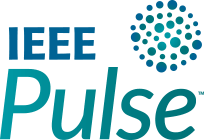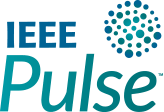We, as a society, have become too easily distracted. We are all suffering these days from lack of focus, and it could get worse. “TMI” stands for “too much information,” and it is too much information that contributes to our becoming highly distracted from the local and the immediate, and, instead, looking to all those external happenings for which we have little control. And, the lack of control that we think we have is causing individual and societal maladies and disruptions.
Our technologies work against our limited abilities to focus. Information comes to us from all directions, and seems to overwhelm our ability to discriminate between those things for which we should have an interest from those that are relatively unimportant. Radio once brought the world to our homes, and that began the onslaught of intrusive, nonlocal information to our attention. But, radio only related to our audio sense, and so was manageable for most. Television involves both aural and visual senses, and brings a lot of information right into our living rooms. The sensory inputs stemming from television are much harder to process and ignore. But, at least television sets were localized to one or two rooms of our houses. Our cell phones have now eliminated that restriction, and have conveyed information of all types to us at any time and in any place. The challenge to process cell phone information has been made much more difficult.
Many years ago, people with whom we came into contact on a daily basis had a lot of experiences in common. There were only two major television networks, CBS and NBC, and almost everyone watched the same TV shows. It was easy to start a discussion with one’s neighbors with the previous I Love Lucy episode, or with Milton Berle’s latest antics. We all were exposed to the same occurrences. Now we have cable with hundreds of TV channels. Even the Super Bowl football game is losing its attraction for a wide audience. Perhaps a few of the shows streaming on the Internet could be modern surrogates for the common entertainment experiences of past years, but they do not seem to be widely shared in conversation. We no longer share many of the same common pastimes, so it is becoming more difficult to find communal topics that can lead to empathy and connection to our acquaintances. Without common experiences to limit the ranges of conversation, we do not have enough time nor interest to explore fully the experiences of others.
I am especially concerned about the inevitable Internet of Things (IoT). Until now, we could ignore our refrigerators. As long as they worked properly to keep things cool, we never thought about them; they were unimportant as everyday provocations. With the IoT, our refrigerators will begin to talk to us and we will no longer be able to ignore them. Someone I know has a new toothbrush that links to her cell phone to tell her where she missed brushing. Now, she has to pay attention to a personal act of hygiene that had largely become a conditioned unconscious and automatic action. One unintended consequence of IoT is that it can turn out to be socially disruptive. More information to process can make for more of a challenge for our finite brains to handle. It’s getting to be more and more difficult to focus on one thing at a time.
At least for most of us, our basic needs, as defined by Maslow (physiological needs, such as nutrition, fluids, sleep; and security), have largely been met, and so we lack the challenges that require us to focus on a few simple necessities. Although we may disagree, our lives have become freed from undue attention to many of the issues that could be all-consuming. How much different are the lives of the homeless from those of most of us. They must focus on immediate needs, such as locating food or a place to stay.
Our heritage of evolutionary abilities has collectively enabled us to survive threats to life and limb, whether from predators or severe storms. Over the course of generations, those individuals with the best survival abilities were the ones who reproduced and passed their survival skills on to their progeny. People without those skills perished. Survival skills were either genetically driven or culturally taught, but they assured that the recipients and their progeny were able to continue.
Among those skills and abilities were sensory and processing capabilities that allowed our forebears to see, hear, and feel happenings around them, but to disregard those of little interest or consequence. These abilities continue today when our eyes take in all of our visual surroundings, but we take little notice of all that is not at our center of attention. Thus, it is legendary that witnesses to crime often cannot relate the details of the scene unless special attention had been brought to bear on them.
The focus that we have evolved is one centered very locally. Only those sensory inputs that will affect us directly and immediately are those inputs that we have the ability to deal with easily. Anything else can become overwhelming.
This ability to focus our attention, as a protective mechanism, keeps our neural system from being overwhelmed by unimportant details, and serves us well in most cases. Focus is the reason we can live with memories, both good and bad; it is the reason we can cope with our environment composed of a plethora of sensory inputs.
My wife many years ago had a bad fall that caused a severe concussion. She was in the hospital for many months, and, when she had recovered enough for release, she described her first few weeks as chaotic; she was unable to process the many sensory inputs that she experienced, and had trouble separating a few important inputs from environmental noise. She had trouble adapting to her environment outside of the recovery center. Her first trip home as a passenger in our vehicle was overwhelming to her. Her first visit to the supermarket, with its many selections of shelved foods packaged in brightly colored boxes and containers, flooded her brain with so many visual images that she could not cope. She can, fortunately, now visit the supermarket and focus her vision on only those groceries for which she seeks. She has regained the ability to properly focus her attention on something manageable.
Attempting to cope with all this information at all times and all places can overwhelm mental processing. More information splits attention time even further. I have a lot of things I intend to do, but, if I don’t focus on only one or two of those things, then I am not able to tackle any of them, and I don’t get any of them done. I can suffer from a type of mental ambitional paralysis.
I have, in my technical, professional, and social life, long been an advocate for general interests. Each of us probably should have a specialty in which we possess a depth of knowledge. But, a general knowledge base can add context to a field of expertise. This emphasis on generalization has served me well over the years; I have been able to be conversant, at least on some level, with a broad array of topics. One might say that a general field of interests goes counter to the degree of focus that is the subject of this essay. However, my general interests are a mile wide and an inch deep (in metric that might be a kilometer wide and a centimeter deep), so do not detract from my ability to specialize in one particular field. My general interests allow me to tie many kinds of information together in a few general principles that I can then focus in on.
We treat encounters with other people as pieces of information, to be dealt with quickly and as superficially as possible. Then, we quickly turn our attention to other inputs that bombard us constantly. Thus, our society has forgotten how to deal with each others as individuals, each with nuanced thoughts and attitudes. Instead, we either attribute characteristics to others based upon generalizations, or we quickly accept judgments made for us by crowds of arbiters to whom, in the interest of efficiency, we concede our right to individual opinions and assessments. This has led to the attitudes of “us versus them” where others are assumed to be involved in one camp or other, although the actual people being considered may have beliefs that are gradations rather than totalities. At least some of the difficulties that we seem to be having communicating, agreeing, and compromising with each other seem to derive from our inability to see others as individuals with reasons behind their attitudes. As Nancy Gibbs, former editor of Time magazine has said, we need to focus more on context than combat.
Lack of focus also leads us to compare our own conditions against those of others, and often to see ours as deficient. Most of us have a lot to be thankful for. Most of us have good health throughout our lives, adequate and nutritious food to eat, comfortable and safe housing in which to live, friends of all flavors, and good reasons to get up each day and live our lives in ways that we choose. Those are my definitions of being rich, and most of us are, if we admit it, rich. Yet, if we lose focus on the positive aspects of our lives, then we can easily see ourselves as exploited, mistreated, and not in control. With a significant portion of our societal population in this frame of mind, trouble brews. More focus on optimism and the good lives that we live, no matter to what degree, can alleviate a lot of discontent. And, make us more generous toward others. Our history shows this to be true.
We need focus to be creative. Focus on the challenge at hand requires the ability to ignore all but the most important of external disturbing distractions, even to the point of total neglect. Without the ability to focus, how can we hope to achieve innovative accomplishments?
We also need focus to make decisions. Lack of focus can lead to confusion and anxiety in its extreme. With all these plagues, decisions cannot come easily, if at all. Indecision is the hallmark of a people easily led, and a symptom of gullibility.
There is no panacea for our collective lack of focus. It takes a strong will to ignore many of the e-mails, apps, social media postings, and other assaults to our sensory and neural processing systems. Few will be successful at meeting this challenge. But the need is still there to focus on only those things that deserve our attention, to be able to spend a precious amount of time with a very limited scope of options. A focus of ours should be on core values, such as loyalty, honesty, respect, civility, and generosity toward others, not on disdain and disagreement. And, chief among these is to focus on each other as individual and important people.
Login to IEEE Pulse
Reset Password
Enter the username or e-mail you used in your profile. A password reset link will be sent to you by email.


